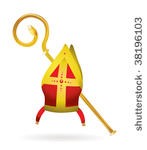On May 19, 2018, the Episcopal Diocese of Newark (New Jersey) elected its 11th bishop. Several things are significant about this: she is a woman (the first woman elected bishop in Newark); she is African American (the first African American elected bishop in Newark); and she was elected on the first ballot, against two other candidates. The Rev. Carlye J. Hughes, a former corporate trainer with a background in human resources and staff development, is currently rector of Trinity Episcopal Church in Fort Worth, Texas; if the majority of the bishops with jurisdiction in the US and the diocesan standing committees consent to her election, she will be consecrated on September 22, 2018, by Presiding Bishop Michael Curry. 
The Episcopal Church in the United States has had female bishops since the Right Reverend Barbara C. Harris was elected Bishop Suffragan (assistant) in Massachusetts in September 1988. This made Bishop Harris the first woman bishop of any of the church bodies that claim “apostolic succession” – that is, Christian denominations or branches that claim a direct, uninterrupted line of continuity from the time of the first apostles. Bishop Harris made headlines not only because she was the first woman bishop in the Episcopal Church but also because she was African American and divorced. She had long been an activist in the civil rights movement so attracted not only praise and excitement but also controversy and even death threats. She retired in 2003, following church regulations, and continues to travel and speak around the country.
Since Bishop Harris’ election and consecration, the Episcopal Church in the US has ordained over three dozen women to either suffragan/assistant or diocesan bishop positions, and women are now being ordained bishops in the Anglican Communion in a dozen countries. The Episcopal Church in the US had its first female Presiding Bishop, Katharine Jefferts Schori, from 2006 to 2015, and she was succeeded by the Most Rev. Michael Curry, the first African American PB, in November 2015. (The world had a chance to hear Curry preach on May 19, 2018 – at the royal wedding of Prince Harry and Meghan Markle!)
The Diocese of Newark, which the Rev. Hughes will lead, has a long history of social justice activism – as well as controversy. The Rt. Rev. John Shelby Spong, Bishop from 1979 to 2000, is well-known to the public through his radical stands on many issues as well as his best-selling books. Banned from several venues for being a heretic, Spong’s works are based on Biblical scholarship and offer modern seekers different and refreshing ways of dealing with Christian thought, beliefs and creeds. (Click here for a list of Bishop Spong’s books.)
According to the Profile of the Diocese that attracted the Rev. Hughes and other candidates for bishop, Bishop Spong was an “advocate for progressive causes both nationally and within The Episcopal Church. He led our Diocese to champion women’s ordination and later, gay rights, far earlier than most other Episcopal Dioceses. One result of Bishop Spong’s 24-year tenure was an ongoing and transformative dialogue on issues that would later threaten schism within the larger church. Women and gay clergy found this Diocese to be a safe place to explore ministry, which influenced change in other dioceses. All this contributed to Newark’s reputation as a progressive Diocese.” The two bishops who succeeded Bishop Spong have carried on this progressive stance.
We offer our congratulations to the Rev. Carlye Hughes on her election and offer our prayers to her and to the Diocese of Newark in their new shared life!
